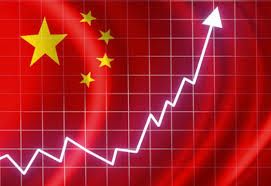Analytics, China, Economics, Export, Financial Services, Markets and Companies
International Internet Magazine. Baltic States news & analytics
Friday, 26.04.2024, 21:51
China's economy faces challenges despite steady performance
 Print version
Print version |
|---|
China is dealing with complicated situations with strong uncertainty at home and abroad, said Xu Shaoshi, minister in charge of the National Development and Reform Commission, during the ongoing bi-monthly meeting of the country's top legislature, reports BC China’s Embassy in Latvia.
Internationally, the internal drive of a global recovery has remained weak and a strong rebound may not happen in the near future despite positive signs so far this year, Xu said, elaborating on a report regarding national economic and social development.
China's economy is going through key adjustments with serious problems and conflicts that hinder its stability, he said.
"The foundation for stable economic growth is not solid enough and there are things to be worried about behind the positive signs," he said.
To tackle these problems, in the following months the central government will continue stable macroeconomic policies and adopt flexible microeconomic policies, he said.
The government will speed up reforms in removing administrative approvals, industrial barriers, budget management and pushing forward private bank trials, he said.
Measures will be made to improve public service and encourage private capital to further open up the service sector.
The government will try its best to guarantee a good harvest of farm produce this year.
As for the country's exports, Xu said the focus will be on updating its export-oriented industries, encouraging service exports and cross-border e-commerce.
In the first half of this year, the country's economy grew by 7.4% year on year with an unemployment rate of 4.08%, both of which met expectations, according to Xu's report.
The net income of rural residents per capita increased by 9.8% year on year in the first half of this year while the disposable income of urban residents rose 7.1%.
From January to July, a total of 8.58 million new jobs were added, 140,000 more than the figure released at the same time last year.
The consumer price index increased by 2.3%, lower than the annual target of 3.5%.
Total retail sales of consumer goods increased by 12.1% year on year in the first seven months while fixed-asset investment rose by 17%, of which investment in infrastructure rose 25%.
Industrial restructuring made favorable progress. Investment in industries with excess capacity and high energy consumption, such as steel, cement and nonferrous metal, has slowed down, according to Xu, citing a drop in steel industry investment by 8.3% year on year.
Meanwhile, the service sector boomed with added value up 8% in the first half of this year and 0.6%age points higher than the industrial added value. It contributed to 46.6% of the gross domestic product, higher than industry and agriculture.
Central and local governments reported slower fiscal revenue growth in the first seven months, according to a report on the 2014 budget, also brought forth for reading on Wednesday.
Fiscal revenues nationwide increased by 8.5% year on year in the first seven months. The annual growth of 2013 was 10.2%.
Central fiscal revenue totaled 4.06 trillion yuan, a year-on-year increase of 6%, while local fiscal revenue was 4.66 trillion yuan with a growth of 10.8%.
Revenue growth has slowed down in 24 out of 31 provincial divisions.
Despite the slowdown, the government continued spending on people's livelihood, said Lou Jiwei, minister of finance, when elaborating the report to lawmakers.
Growth of government spending was 6.5%age points higher than revenue growth.
The central government spent 1.24 trillion yuan by July, about 55.1% of the annual budgeted figure, while local governments spent 6.7 trillion yuan, about 51.5% of the annual budget.
Spending on education, cultural service, social insurance and environmental protection increased by 11% or more. Health care, community development, infrastructure of transport, housing and agriculture spending was up 16%.
English.news.cn








 «The Baltic Course» Is Sold and Stays in Business!
«The Baltic Course» Is Sold and Stays in Business!

